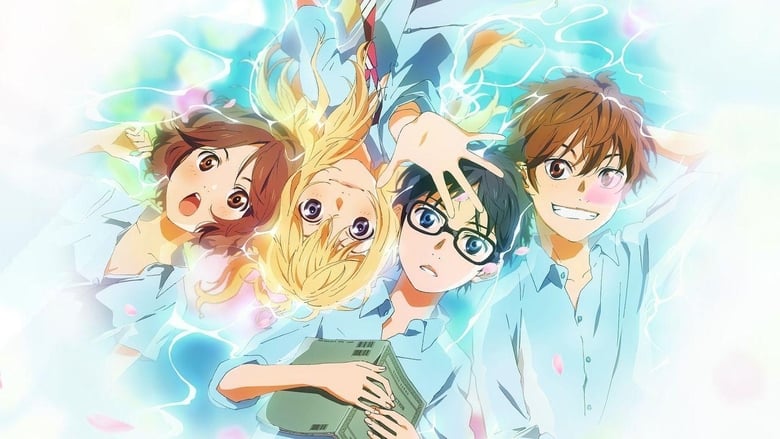a beautiful lie indeed
[ MyAnimeList ]Article Index
spoiler warning! this is a deeper look into the story and everything the anime has to offer. if you haven’t finished it yet and came here by accident, you might want to go back and finish the story first.
take me back!Kousei’s silence
Kousei’s trauma isn’t metaphorical, losing the ability to hear his own playing is a psychological shutdown, almost textbook PTSD, triggered by the abuse and death of his mother.
the anime shows it without exaggeration. underwater stillness, ringing void, frozen hands — all seems to align with the clinical signs of tone deafness or acquired amusia, where someone loses the ability to process musical tone.
it’s not just the will to play that’s gone, but the capacity to perceive music itself. his story is about rebuilding that connection, and the series gives it the space it needs.
Kaori’s fragility
a single petal that drifted into my life.
her illness is never named, but the symptoms point to something degenerative. the likeliest diagnosis is Friedreich’s ataxia, which aligns with her loss of coordination and cardiac complications. fainting, sudden collapses, shaky motor control. the surgery may have been a pacemaker attempt, but she doesn’t survive.
maybe it’s fictitious, but whether or not it maps neatly to a diagnosis doesn’t matter. her fragility shapes the story: a reminder of impermanence, and the force that pushes Kousei to grow.
the final duet
while Kaori is in surgery, Kousei plays Chopin’s Ballade No. 1 in G minor. it becomes their farewell. in his vision she joins him, violin in hand, and together they performed the duet they promised at last.
as she fades, he begs her to stay. it’s the goodbye he never gave his mother. this time he says it — through the piano, through tears. in reality, he finishes the piece alone.
the lie in april
the title is a deliberate misdirection. for most of the show, it feels like it’s his lie, until episode 22 reveals the truth. from Kaori’s letter:
i said i liked Watari. that was my lie in april.
it was hers. knowing her time was short, she lied to enter Kousei’s world without weighing him down. she chose to make that spring beautiful, even if it meant pretending.
it’s a memory anchor. for him to never forget her, and to remember the season he came back to life.
Watari, sidelined but not hollow
Kaori writes that Watari will move on and forget her. but the show quietly denies that.
he lingers on her photo. he holds his phone after she’s gone. in the flashback, she scolds him, not the other way around. he wasn’t oblivious, he simply played the role she asked of him.
epilogue
once a year, when the cherry blossoms fall, when the world turns pink again, Kousei will hear their music. not as sorrow, but as gratitude.
spring will be here soon. the season i met you is almost here. a spring without you will arrive.
